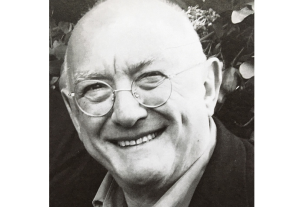 LALKAR was saddened to learn of the death of Michael Seifert (born 30 July 1942; died 19 July 2017), a progressive solicitor, who worked tirelessly to support the National Union of Mineworkers during its titanic struggle against the Thatcher government between 1984-85. Arthur Scargill, the miners’ leader at the time of the strike, said of Michael: “The working class have lost a true warrior and I have lost a true friend”. Michael’s firm, Seifert Sedley & Co, helped not only the union as an organisation, but also offered free legal advice to the striking miners and their families as they suffered from the heartless retribution of the British state.
LALKAR was saddened to learn of the death of Michael Seifert (born 30 July 1942; died 19 July 2017), a progressive solicitor, who worked tirelessly to support the National Union of Mineworkers during its titanic struggle against the Thatcher government between 1984-85. Arthur Scargill, the miners’ leader at the time of the strike, said of Michael: “The working class have lost a true warrior and I have lost a true friend”. Michael’s firm, Seifert Sedley & Co, helped not only the union as an organisation, but also offered free legal advice to the striking miners and their families as they suffered from the heartless retribution of the British state.
As Michael’s obituary published in The Guardian (Jane Deighton, 10 August 2017) points out:
“Margaret Thatcher used ‘every means’ against the miners… These included the flooding of the NUM with writs from well-funded opponents: writs claiming that picketing amounted to unlawful harassment; writs claiming the national strike was not official; and writs seeking sequestration of the union funds and putting it into receivership. Michael went to the limit to protect the NUM. But Thatcher got what she wanted.
“Nevertheless, the miners managed to strike for nearly a year, during which time Seifert Sedley provided thousands of pounds’ worth of legal assistance, without expecting payment. The following year, Michael represented striking printers during the Wapping dispute with similar vigour. A committed communist, Michael was a significant figure of the left throughout the last half century. It was his involvement with progressive causes as much as his incisive legal mind that made the advice he gave wise, unstinting and trusted.”
Michael was also an internationalist, a strong supporter of socialist Cuba, and of the South African liberation movement. For example, “Michael gave ANC leaders strategic legal advice during their years in exile. He also sued the South African government for conspiracy to kidnap the ANC representative in London. Michael advised the Anti-Apartheid Movement as well, at times securing its very survival” (ibid.).
If he never became an honoured Establishment figure, “he was given honours that delighted him: he was made an honorary member of the NUM in 1985; invited by the ANC to attend the inauguration of Nelson Mandela in South Africa in 1994; and made vice-president of the Haldane Society of Socialist Lawyers in 2006” (ibid.).
His work will be carried on by the many young solicitors that he trained.
LALKAR sends condolences to his partner Caroline Conran, his sister, Susan, and his brother, Roger who survive him.
Comments are closed, but trackbacks and pingbacks are open.